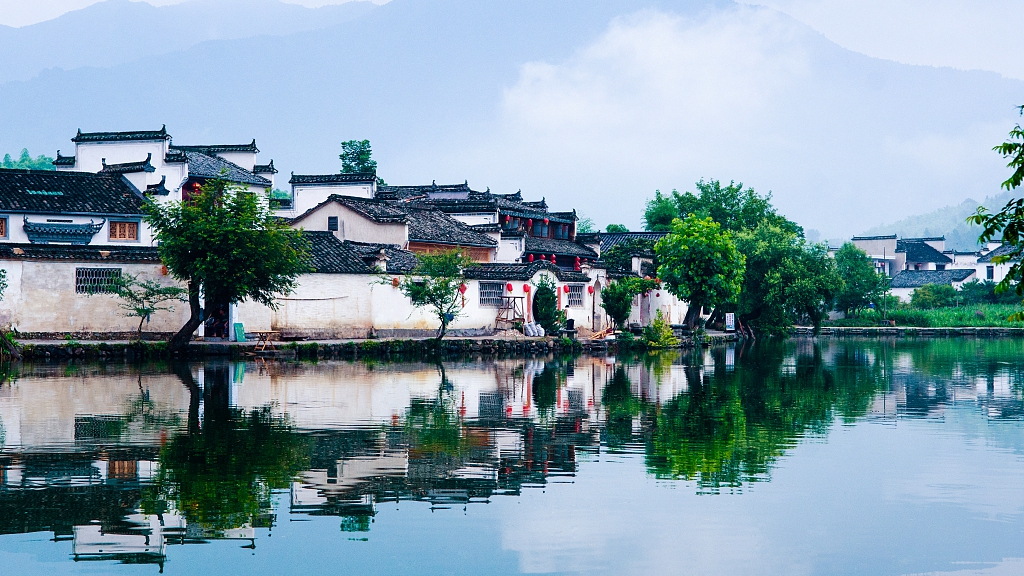
(Photo: CGTN)
Over the past few years, it has become increasingly attractive for domestic tourism cities to host esports events and the related theme exhibitions because of the booming esports business.
The finals of the 2019 International Dota 2 Championships held in Shanghai recently attracted more than 80,000 spectators from all over the world.
For most Chinese esports fans, it was a rare opportunity to enjoy the live competitions because this was the first time the country hosted the annual event which has been staged in Europe and North America since 2011.
Dota is an acronym for "Defense of the Ancients", one of the world's most popular multiplayer online battle arena games in which players level up as their heroes and try to destroy their opponents' bases.
"I have played Dota for more than 10 years. The game has strengthened the bond among my friends and me," said Wang Jin, 25, a State-owned enterprise employee in Shanghai who attended the event with some in-game friends from different cities.
Wang added: "The previous matches were held overseas, so we had no choice but to watch them online. We are so excited that it has come to China this year."
The strong tension and impact of competitive sports naturally attract adventurous travelers, while the beautiful scenery of the host city and different local customs also add more flavor to their travel.
Starting with Tencent Games in 2017, Harbin Ice and Snow World, one of the world's biggest ice and snow theme parks in the capital city of Northeast China's Heilongjiang province, created the game scene of canyons depicted in Honor of Kings for two consecutive years.
Honor of Kings, a superstar online game created by Tencent Games in 2015, has over 200 million registered users who can play dozens of hero roles such as warriors, assassins and archers, fighting with or against each other in the game.
Within the 600,000-square meter park that ran from Jan 5 till Feb 28 this year, the Honor of Kings theme area expanded its construction site to 43,200 square meters from 15,000 square meters in the previous year.
About 400 sculptors worked together for 30 days to finish the area with 65,000 cubic meters of ice and snow, bringing tourists a unique game scene in the real world.
Tourists could enjoy a magnificent 3D light show that narrated the stories about the heroes in the game every evening in the area.
The perfect combination of traditional ice and snow sculpture art and modern science and technology brought spectators a visual shock of trying to integrate the real and the virtual reality.
"The popular game has attracted hundreds of millions of active users and most of them are young people who are also our target customers," said Zheng Yingzhuo, a staff member from the sales and marketing department of Harbin Ice and Snow World. "The professional competitions held in the park every weekend could attract thousands of players to participate."
"It is a successful combination of the world's largest ice and snow theme park and the most popular mobile games in China," she said. "It is also a crossover fusion of the most advanced ice and snow sculpture art and the most fashionable digital cultural and creative products."
"Favorable development of tourism always connects with culture, so it is no accident that esports and tourism complement each other," said Zhou Lin, a travel researcher with the Heilongjiang Academy of Social Sciences. "As an emerging cultural format, esports games have been widely accepted by young people who are the main force of cultural communication and tourism consumption."
"Famous tourism cities can be seen as a highlight of esports events and the events can also attract more visitors," she told China Daily. "Harbin Ice and Snow World is a new attempt to combine online and offline products, which can help promote cultural innovation and build the tourism brand in the province."


